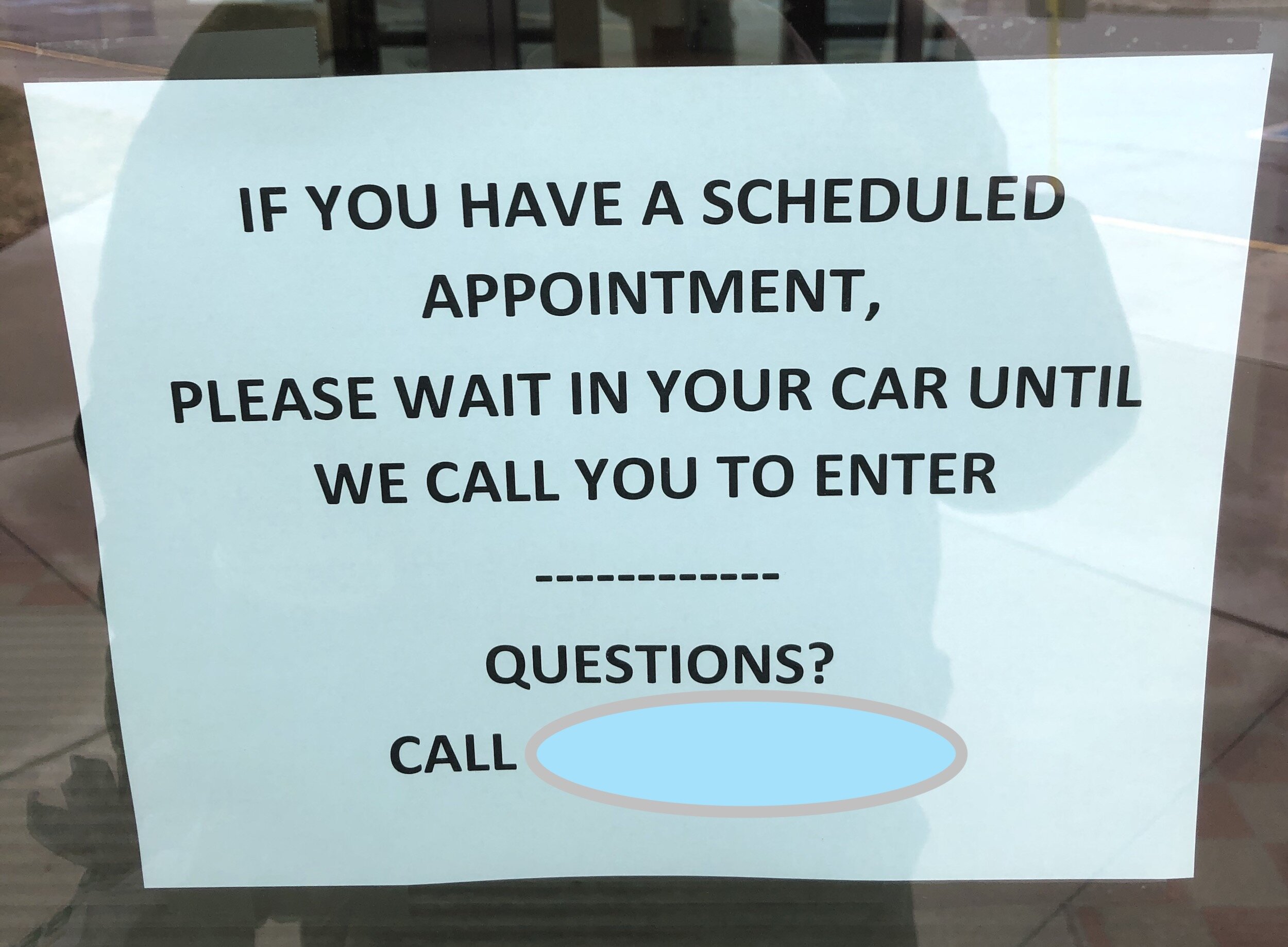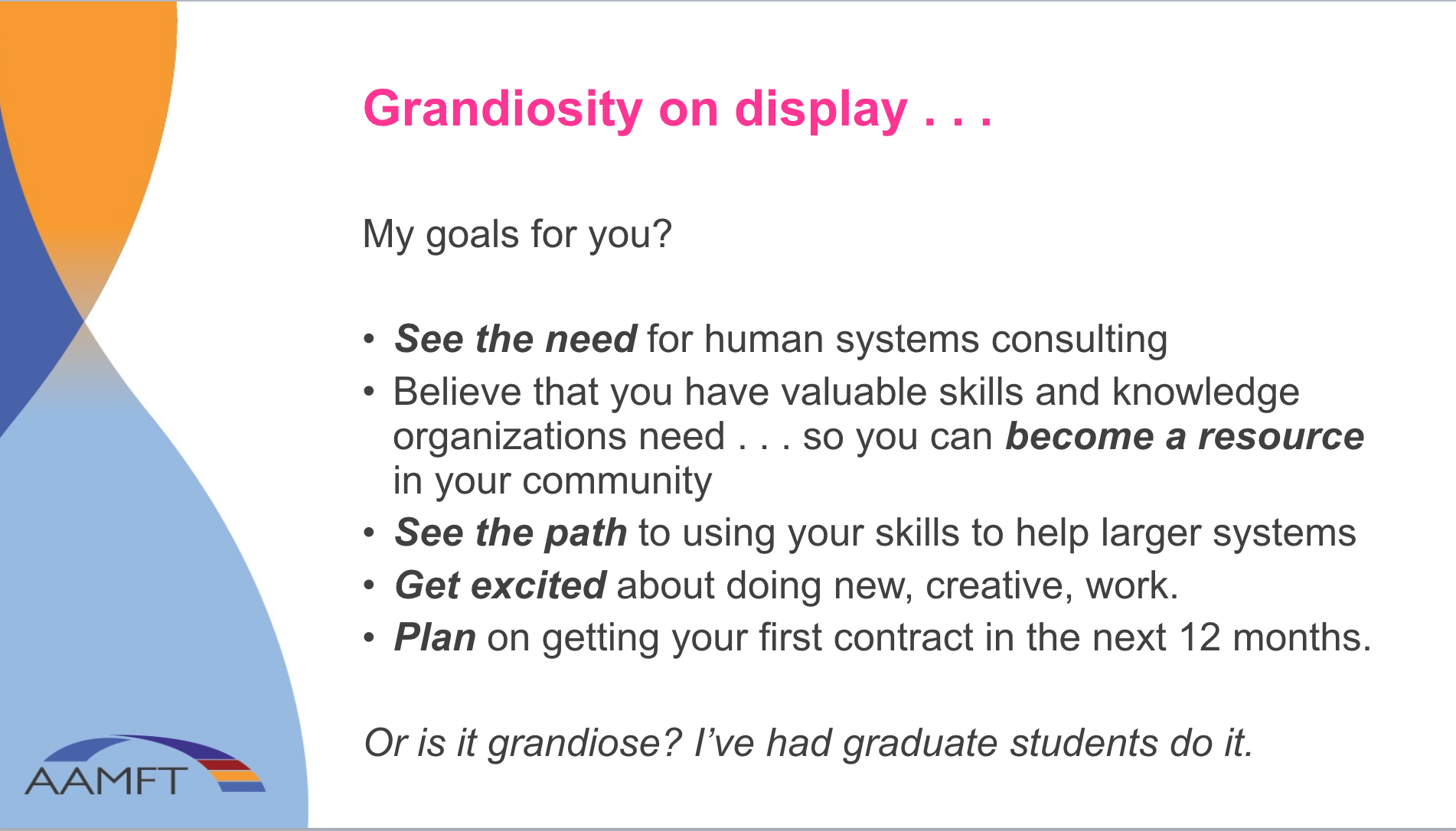Why not “just do therapy?” It’s a question I used to get asked by graduate students working on degrees in mental health and who took my class on consulting.. “I have a low boredom threshold!” was my snappy repartee to this question. A more serious answer, however, is buried within that tongue-in-cheek response. While my students were a quiver with eagerness to begin their chosen career, I had been doing therapy for years and, although 25+ years in, I still love what I do in my private practice—it’s not the only thing I love to do; nor, do I want to simply do the same thing for the remained of my professional life. “Wash, rinse, and repeat” can be a dull rut. Eventually, those same students saw the benefits and their enthusiasm led me to publish my first book about our methods in 2011.
So, I think it is always a good thing to seek to grow and if that is in refining and mastering one specific area of expertise, fine. But it also can be moving on to master—of if not master in terms of being “better than anyone else”— or deliver quality products and services in new areas, developing new skills, and continue to learn.
For example, I have an acquaintance who takes the “master approach” to fine woodworking . . . and his work is exquisite. I commented to a friend about how my craftmanship was nowhere like his, and the friend responded, “Yes, but at least you get things done.” Fair point. He will build a few beautiful things. I will build lots of good things. With six children, one still home, and expecting our ninth grandchild, while working full time, maybe it is a trade-off that is necessary in my case—unlike my friend who is an “empty nester.”
Professionals who are happy doing their one thing, steadily improving on it over time, perfecting their craft . . . I am genuinely happy for you . . . and sometimes wonder if I should be more like you. But I’m not and, frankly, being that narrowly focused for years to my personality type would feel like—harkening back to the old westerns of the past— being buried up to your neck in the desert and left behind.
So, for those of us who value “getting things done” more than creating the flawless product and who want to continue to grow . . . even venturing into new areas . . . here is . . .
A list of experiences I have enjoyed about getting “beyond the couch” of therapy and into the world of consulting.
Touring the Research & Development area of an international corporation. In the very first consulting work I was involved in, we worked with an international agricultural manufacturing company. This family-owned business is an industry leader and had 9 plants in the home location. As part of our tour, they showed us what they were working on for the future—it was like getting a peak behind the curtain at what Elon Mush was doing with Tesla.
Learning about the needs of national utilities and how increase demand for power has led to sagging power lines Not being naturally “mechanically minded” and with limited education about engineering and physics (despite being a science major) We got to learn about the problems utilities face that are caused by increased demands for power (more current through the lines makes them sag.) and the very creative ways of offering solutions to avoid expensive interruptions of service and replacement.
The progress made in cancer research and targeting of cancer-types with new medications. Learning about in-house research and the newer approaches to cancer treatment was an interesting side-benefit of one consulting gig.
Lean Manufacturing, Just-in-Time stock management, and Kaizan. Again, our first gig with the agricultural firm intruduced us to some of the modern (at that time) approaches to inventory and manufacturing and how they were pragmatically implemented in a large organization.
Different approaches to staffing, training, and supporting clergy working with local churches. Having worked with ecclesiastical organizations from many different traditions has been interesting in learning how they very in their approaches to their work with congregations, proving leadership and support, and deal with issues.
Programs for supporting the provision of nutritious meals in government-supervised day care-senior services, etc. The work we have done with a number of non-profits, quasi-governmental bodies, or government programs has introduced us to the services and challenges of providing those services in venues operating on limited budgets and significant bureaucratic demands.
Grant-funding for services in schools and non-profit organizations. I don’t consider myself a “grant-writer” still I have written, and received funding, for many grants. This process introduced us to the work of foundations, the methods they follow to try and address community-wide issues, and the challenges of “soft money” and creating sustainable projects through collaborative efforts.
Narrative-based assessment of potential executive leadership hires. Hiring professionals and top leadership is always a challenge. Finding the right talent and someone whose performance mirrors their vitae/resume and interviewing skills is a demanding endeavor. While HSC does not specialize in this process, we have, due to our deep involvement with organizations been asked to sit in and help with this process in a few cases. Bringing our specialty . . . understanding people . . . to complement the organization’s business and technical skills has been rewarding.
Team Training for Skill Building. Most leaders recognize the need for on-going training and skill building in their leadership. Too often that training is through ad-hoc external trainings chosen by the employees for their own idiosyncratic reasons (it is interesting, close to home, makes them more marketable) or provided in-house often by managers too busy with running the organization to devote significant time to develop the training to polished product. Wresting with the problem of leaders and employees needing to develop real skills has led us to develop, test, and implement trainings based on real skill development not just information and lecture. (This has been one area, training, where refining and repeating the trainings has led us to develop that master artisan approach by the way.)
Well, I hope that give the reader a little taste of the “side benefits” of becoming a consultant. Taking your knowledge and skills “on the road” allows you to help more people, can be refreshing work and a break from the heavy clinical focus for many professionals, and can increase your own potential for growing and learning about new industries, processes, and cultural changes operating all around you.
Other HSC Resources
Engaging Your Team: A framework for leading "difficult" people.
Lessons Learned Around the World: People-centered leadership,A. Keith Miller, Major, U.S. Airforce (Retired)
Family Legacy: Protecting family in family business.
Private Practice Contracting: A path away from insurance dependency.











































